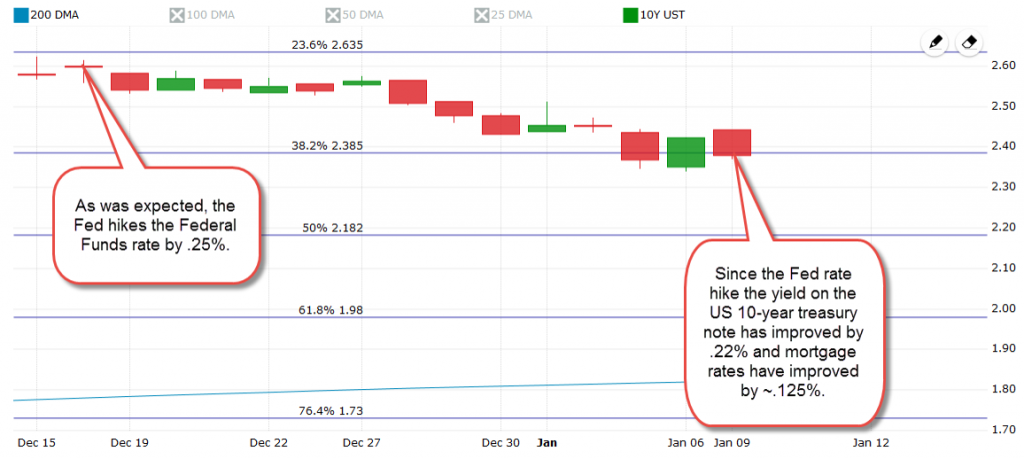Mortgage rates are effectively unchanged from last week.
As I’ve written countless times on this feed there is a common misunderstanding about the relationship between the Federal Reserve and mortgage rates. The Fed does not directly control mortgage rates.
The most recent Fed hike, which took place on December 16th, is yet another example. Since December 16th the yield on the US 10-year treasury note has improved as have mortgage rates (feel free to knock on wood as you read this).

Why? It’s important to remember that when the Fed hikes short-term interest rates it is with the intention of curbing inflationary pressure. Since inflation eats away at the profits for lenders Fed rate hikes can actually encourage improvements in longer-term interest rates.
The all-important jobs report that was released on Friday showed disappointing results for the number of new jobs created in December. Normally this would be positive news for mortgage rates since bad news for the economy tends to be good news for interest rates.
However, the report also showed higher than expected wage growth. Since last year average wages increased by nearly 3% which was above expectations. Wage pressure can lead to inflation which we know is not a positive factor for mortgage rates.
This week’s economic calendar is fairly light until Friday. On Friday we’ll get the latest readings for retail sales, the Producer Price Index, and the Consumer Price Index.
Current Outlook: floating